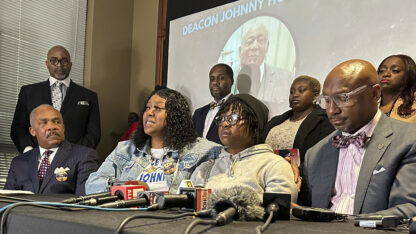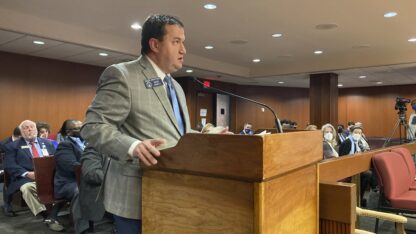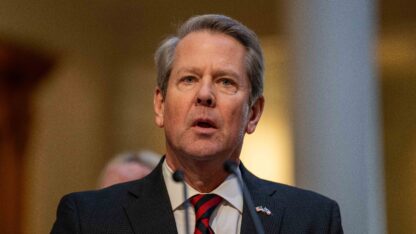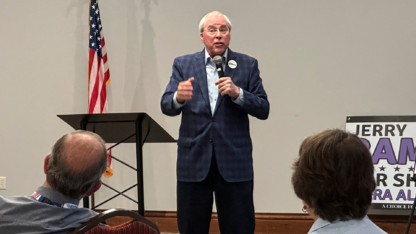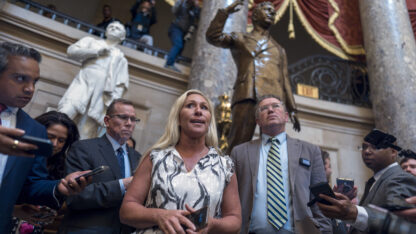The 7th District, Metro Atlanta’s Other ‘Competitive’ Congressional Race
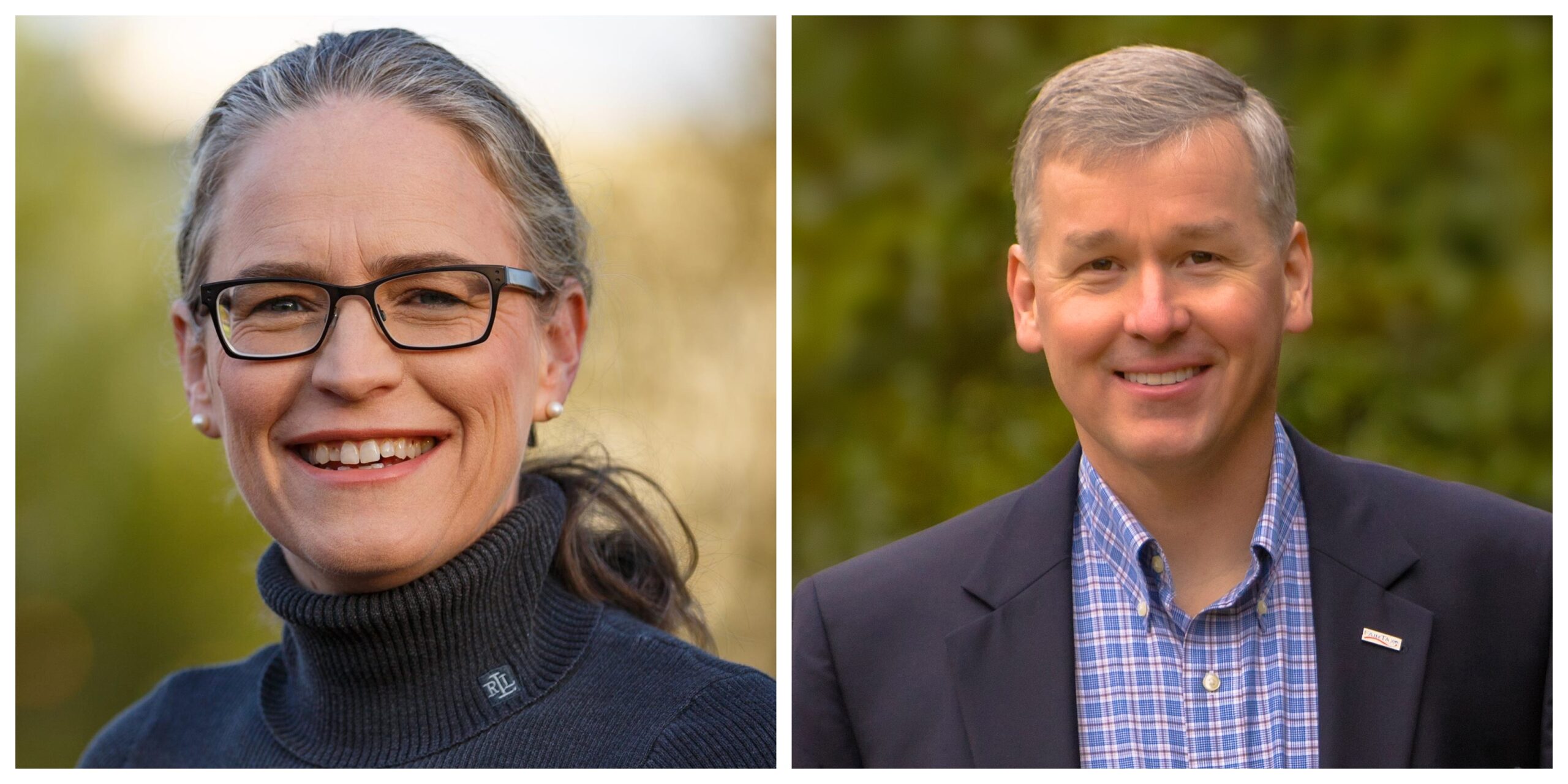
Incumbent Republican Congressman Rob Woodall is facing Democratic challenger Carolyn Bourdeaux in the race for Georgia’s 7th District.
Credit / Carolyn for Congress/Rob Woodall for Congress
The 6th Congressional district in Georgia has received a lot of attention in recent past. Last year in a special election, Republican Karen Handel beat Jon Ossof in what was called the expensive Congressional race ever. Handel is defending her seat from Democrat Lucy McBath on Tuesday.
But the 7th district race is worth looking at as well.
Incumbent Republican Congressman Rob Woodall and his Democratic challenger Carolyn Bourdeaux agree about the diversity of the 7th district.
Bourdeaux said she sees it every time she knocks on doors. “It’s a very diverse district. Twenty-five percent of the people in the district were born outside of this country,” she said. “And one of the things you’ll find as you knock doors is you’ll find that it is people from all over the world, it is incredibly diverse, every door you knock is a little bit different.”
Congressman Woodall also calls the district, “wildly diverse and wildly successful.”
“If anyone wonders what the future of America looks like, it looks like us,” he said. And, he said, it’s been “on the same course” since he took office in 2011.
But strategists are reading something into the demography. The 7th and the 6th districts are both on the Democratic Party’s “Red to Blue” list, for the first time.
“When those myopic strategists in the Democratic party in Washington look at that, where they see diversity, they see liberalism,” Woodall said. “Where you and I see diversity here, we see small business owners, we see educators, we see folks who fled socialism to come to a place where freedom lives.”
Woodall said in the last round of redistricting, he requested as much diversity in his district as possible.
“When folks start to look at redistricting they look at demographic trends and they think that translates into political winners and losers,” he said. “That could be true in some parts of the country. It’s not true in our part of the country.”
Bourdeaux, a public policy professor, said the district is changing. She points to 100,000 newly registered voters since 2014, and the fact that about half of all voters registered since 2009.
“This is a very new and a very young district,” she said. “Most of the homes here were built since the 1990s.”
For the first time in decades, Gwinnett County, much of which is in the 7th district, went Democratic in the 2016 presidential race. It also became the first county in Georgia to have enough Spanish language speakers that the Census Bureau required its ballots be offered in Spanish.
Stephanie Cho is executive director of Asian Americans Advancing Justice Atlanta, a nonpartisan civic engagement group in Norcross, in the 7th district. She said many in these immigrant communities are just now old enough to vote. “People say millennials don’t vote, Asians don’t vote, black people don’t vote. I just think that that’s old news and it’s starting to really shift.”
Plus, she said, civic engagement work like that by her group, in native languages, is starting to reach older populations, too.
“Our organization is also eight years old at this point. I think the consistent work, particularly in immigrant-heavy areas, like the 6th district, the 7th district, is just starting to really bear its fruit right now.”
Another new change? Bourdeaux, who is the strongest Democratic challenger Woodall has had. He’s won all his elections by more than 20 points.
She has outraised Woodall by more than a million dollars. He said that doesn’t worry him: “Outside money doesn’t get to choose who wins and who loses. Local voters get to choose who wins and who loses. And that’s good news for me.”
Charles Bullock teaches political science at the University of Georgia. “In Georgia we really haven’t had a whole lost of districts that haven’t been thought of us competitive. But this year particularly the 7th and to a lesser extent the 6th, are being viewed as ones that could change,” he said. “A few years ago one would look at these contests and said ‘No, the Democrat who’s running, more power to them, but they don’t have any chance of being able to win.’ Now it’s thought that there’s at least a chance.”
“Of course,” Bullock added, “A trick for Democrats then is to get these new Democrats registered and to get them to get out and vote.”



